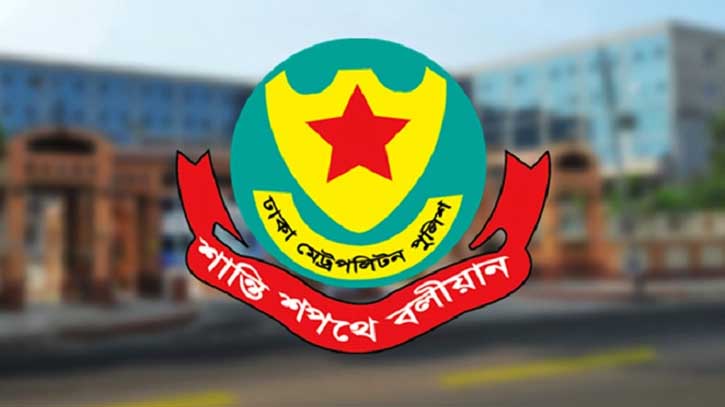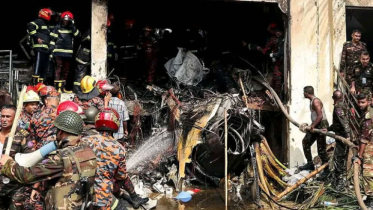
Photo: Collected
The Bangladesh Police force is facing an unprecedented crisis in the wake of the political upheaval and subsequent regime change that occurred earlier this year.
The student-led mass upsurge in July and August culminated in the fall of Sheikh Hasina's 16-year administration on August 5, leaving the nation's law enforcement in disarray.
For the first time since independence, the country witnessed widespread attacks on police stations. Firearms and ammunition were looted, with many police officers either fleeing their posts or taking refuge in barracks and other safe locations.
Operations at most police stations across the country were suspended following the downfall of the Hasina government, exacerbating concerns over public safety and law enforcement.
Some police stations were set alight, forcing officers to abandon their posts. Then Inspector General of Police (IGP) Md Mainul Islam said on August 11 that 42 police personnel were killed and 507 injured during clashes in July and August.
According to Police Headquarters (PHQ), 5,829 firearms, including Chinese rifles, SMGs, pistols, and shotguns, as well as 606,742 bullets, were looted from police establishments on 5 August. Besides, over 31,000 teargas shells, 1,455 teargas grenades, 4,692 sound grenades, and various other munitions were reported stolen.
Recovery Efforts and Missing Arsenal
A joint operation to recover the looted weapons began on 4 September. , 1,419 firearms and 263,153 rounds of ammunition remain unaccounted for, raising serious concerns about their potential misuse.
Police sources revealed that many looted weapons are believed to be in the hands of criminal elements, further endangering public safety. Civil society groups have urged immediate action to address the alarming implications of this crisis.
Operational Challenges and Absconding Officers
The political shift has left the police force grappling with conflicting directives and an erosion of operational clarity. Many officers, unsettled by the changes, have struggled to perform their duties effectively. Some have fled to undisclosed locations or even abroad, fearing trials for alleged misconduct during Sheikh Hasina's tenure.
PHQ data reveals that one deputy inspector general (DIG), seven additional DIGs, two superintendents of police, and numerous lower-ranking officers and constables have been absconding since August. Among the most notable names are Monirul Islam, Additional IGP and chief of the Special Branch (SB); Harun Or Rashid, former additional commissioner of the Detective Branch (DB) of Dhaka Metropolitan Police; and Proloy Kumar Joarder, Additional DIG of PHQ.
In response, the authorities have suspended the salaries and allowances of absconding personnel and initiated legal proceedings against them.
Impact on Public Safety
The absence of effective law enforcement has led to a noticeable increase in crime and a diminished police presence on the streets. Civil society organisations have called for an urgent overhaul of the police force, stressing the need for improved training, transparency, and a cohesive strategy to restore order.
Local communities have expressed growing frustration, with many questioning the government's ability to stabilise the situation.
Experts have recommended a thorough review of the police's operational guidelines, suggesting that they be updated to reflect the new political landscape.
Government Response
The Home Ministry is expected to outline a comprehensive plan to address the challenges faced by the police force. This includes measures to rebuild public trust, strengthen law enforcement, and adapt the force's operations to meet current demands.
As the nation watches closely, the resilience of the police force remains in question. Whether it can recover from this unprecedented turmoil and continue its critical role in ensuring public safety will be a key test for the new administration.
Messenger/Tareq








